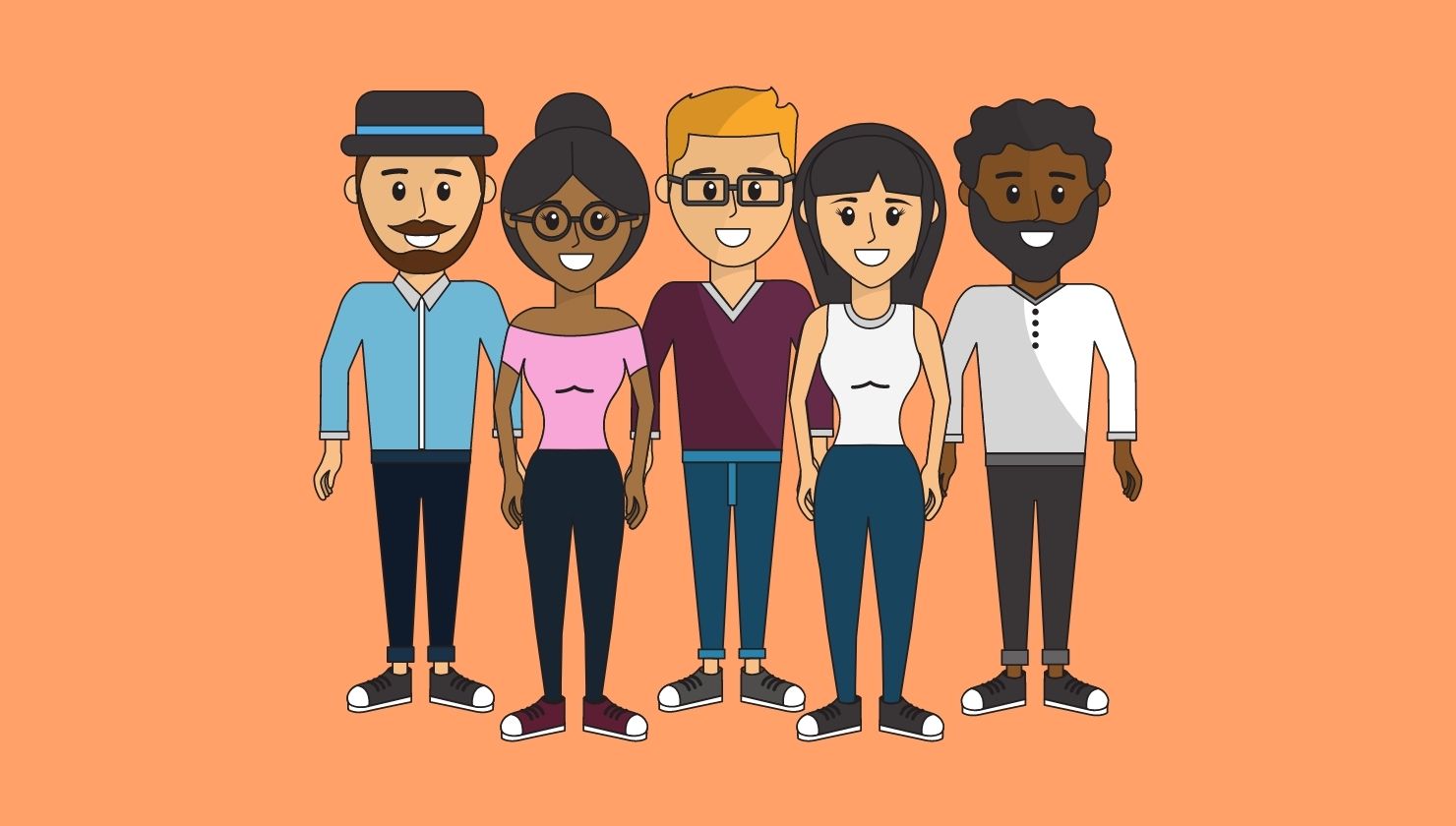Pride is celebrated every June in the Lesbian, Gay, Bisexual, Transgender, Queer (LGBTQ+) communities. The celebration of Pride is celebrated every year in June as a memorial to the 1969 Stonewall Riots in New York where LGBTQ+ activists fought to demand the right to live openly, without fear of being shamed or arrested. These activists, who many are today’s older adults, paved the way for us to have the freedoms and dignity that we now celebrate. The LGBTQ+ community has proved to be resilient through the years, largely in part to the formation of chosen families.
Chosen Family, or Family of Choice, is a common term used for trusted circles within the LGBTQ+ communities. This is due to situations where LGBTQ+ people have received shame, disrespect, or rejection from their biological families for their sexual orientation or gender identity. Many have been rejected by their parents or siblings. As a result, the LGBTQ+ person will create a new family to fill the void caused by a missing loved one and replace them with a new “chosen family.” People who can fill the void of the missing relative.
@i_make_it_weird Reply to @dino_nugget_rick I wish I had a different answer for you #lgbtq #queer #trans #nonbinary #family #acceptance #love #chosenfamily #ily
♬ Emotional Piano Instrumental In E Minor – Tom Bailey Backing Tracks
So What is a Chosen Family?
Chosen families are communities where people can feel like they belong. People can form a relationship with a new brother, new sister, new parent, new cousin, and so on. This person will be there to confide in, for support, for protection, for inclusion. A bond that is made in love, not blood.
Why Do LGBTQ+ People Create Chosen Families?
Humans are social creatures that need a loving circle to live their best lives. Many people are able to turn to their biological families for this connection; however, many LGBTQ+ people do not have this privilege. Many LGBTQ+ are born in families that are not culturally accepting of LGBTQ+ lifestyles. In fear of isolation, LGBTQ+ individuals commonly live “in the closet,” or in hiding, and conceal their identity in fear of being rejected by their biological families or their communities. That is, until they find “pride”, or self-love, and openly and freely express themselves and “get out of the closet,” or unapologetically express their identity.
@auggieryan We stand with you proud and strong #augsarmy #10SecondsVs #GonnaKnow #lgbt #trans #pride
♬ Iris – Natalie Taylor
This transition may upset members of their biological families and affect relationships, so LGBTQ+ people may feel the need to create a new family that provides love, support, and protection for what they feel is their true-self.
Also, it is important to note that many of the qualities of traditional families were not available to LGBTQ+ people. Recent events have changed the dynamics of LGBTQ+ people as they relate to their families. Most notably, same sex marriage in the United States was not an option until 2015. This is less than ten years ago!
Before then, some LGBTQ+ people were not able to visualize themselves in a long term relationship because marriage was not an option.
Another example is that of having children. Traditional families are commonly able to have children naturally or by adopting. Adoption for same sex-couples did not become legal in all 50 states until 2017. Having children in a same-sex couple requires planning and resources unlike heterosexual relationships that can “accidentally” have children.
So How Has the LGBTQ+ Experience Affected Older Adults?

Different people experience things differently but there are some historical events that shape the collective psyche of older generations towards LGBTQ+ people. The oldest of the older adults are from the so-called “Greatest Generation” – born between 1901 and 1924. This generation was shaped and affected by the gloom of the Great Depression.
Then there came the “Silent Generation” who was born between 1946 and 1964. The Silent Generation was shaped and affected by McCarthyism, when same-sex behavior was labeled as a mental disorder and same-sex relationships were criminalized and published in newspapers for public humiliation and job removal.
The “Baby Boom” generation comprises those born between 1946 and 1964 and was strongly influenced by the Civil Rights era of the 1960s that gave birth to the Stonewall Riots of 1969 which is credited for advancing the gay liberation movement.
Our LGBTQ+ older adults have had to deal with the shame society placed (and the laws that created barriers to marriage and raising children). Many lost their biological family and their ability to make a living… thus, turning to their trusted circles to form a chosen family, a new loving community.
How do Chosen Families Affect Older Adults?

Society today, thank goodness, is far more accepting of LGBTQ+ people.
For many older adults, the rejection they experienced throughout their lives not only affected their relationships with their biological families, but even the way that they perceived themselves. This had lasting affects on their health, confidence, and even their ability to earn an income.
Even the LGBTQ+ people who have not experienced shame, or bullying, in their lives because of their identity have heard of, or witnessed, others receive such attacks and thus, have altered their behavior to never be identified as LGBTQ+ for fear of receiving such treatment. Furthermore, the stress of dealing with decades of discrimination means that older adults who identify as LGBTQ+ have a higher risk for physical and mental illnesses such as depression, disability, poverty, and isolation.
Having an immediate Trusted Circle, or chosen family, may provide the older adult with the companionship and support needed to have a more fulfilled life. Companionship alone will not cure a person’s depression or disability, but it may make life a little more bearable for our most vulnerable, particularly LGBTQ+ older adults who throughout their lives showed us the nerve, resiliency, and pride needed to effect change.







